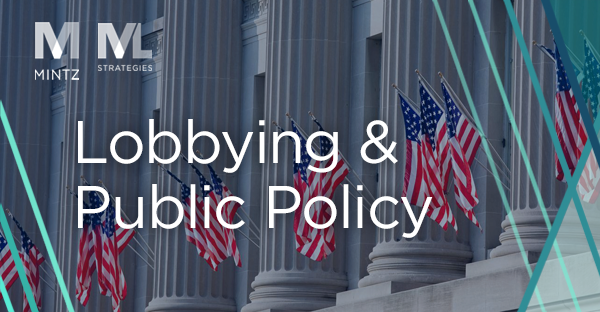
Tax
Viewpoints
Filter by:
Employee Ownership Trusts Update – The Tax Incentives that Everyone was Hoping For
November 21, 2023 | Blog | By Katy Pitch
The Canadian Government released its Fall Economic Statement (“FES 2023”) on November 21, 2023 outlining the government’s fiscal update. FES 2023 focuses on housing, affordability, and fighting climate change. However, buried in the middle of the 131-page document is a paragraph highlighting a proposed tax change regarding the recent tax rules implementing Employee Ownership Trusts (“EOTs”).
Energy & Sustainability Legal Feature – Increased Opportunity for More Taxpayers to Access Clean Energy Tax Credits and Related Considerations and Limitations
October 26, 2023 | Article | By Gregg M. Benson, David Salamon, Helen Huang
This past summer, the Treasury and Internal Revenue Service (IRS) published proposed Treasury Regulations (88 FR 40528 and 88 FR 40496) under two key provisions of the Inflation Reduction Act of 2022 (IRA) designed to enable taxpayers and tax-exempt entities to monetize certain energy-related federal tax credits. Section 6417 allows certain tax-exempt and governmental entities that historically could not benefit from such tax credits to receive direct payments from the government in lieu of such tax credits. Section 6418 permits taxpayers to transfer all or a portion of certain energy-related tax credits to unrelated parties for cash. By broadening the universe of organizations that are able to make use of energy-related tax credits through the direct pay provisions and creating a more direct pathway for taxpayers interested in financing energy projects to share credits through transferability, these provisions stand to significantly expand the market for investment in energy projects.
Considering Converting an LLC into a Corporation? Here Are the QSBS Issues You Should Be Thinking About
August 22, 2023 | Alert | By Gregg M. Benson, Daniel DeWolf, David Salamon
Read about the benefits and risks of deferring the conversion of an LLC into a corporation in order to benefit from the qualified small business stock (QSBS) rules of the US tax code.
Tax Court Case Watch: Tax Court Considers the Application of the Self-Employment Tax Rules to Investment Funds
July 24, 2023 | Alert | By Timothy J. Santoli
Read about pending cases docketed in the US Tax Court that are considering the application of the limited partner exclusion from self-employment tax when the limited partners in a state law limited partnership actively participate in the partnership’s business.
Tax Court Confirms that Profits Interest Safe Harbor Should Apply to Tiered Partnership Structure
July 18, 2023 | Alert | By Timothy J. Santoli
Read about a recent US Tax Court decision confirming that taxpayers can benefit from the “profits interest” safe harbor, set forth in Revenue Procedures 93-27 and 2001-43, which holds that the issuance of such an interest in exchange for services that benefit a lower-tier entity that is or would become a partnership is not a taxable event.
The IRS Denies Tax Deduction for Common Sell-Side Success-Based Fees
July 11, 2023 | Alert | By Timothy J. Santoli, David Salamon
Read about an IRS private letter ruling, which held that success-based fees in an M&A transaction were incurred by a private equity sponsor rather than by the target. The decision denied the target’s late request for a Safe Harbor Election, which permits a tax deduction of 70% of the success-based fees.
IRS Issues Notice 2023-44 Clarifying the 48C Program Application Process and Timeline
June 20, 2023 | Advisory | By Gregg M. Benson, David Salamon, Jared Solomon
Read about IRS Notice 2023-44, which clarifies the 48C program application process and timeline following amendments to the program under the Inflation Reduction Act and an earlier notice providing application guidelines.
IRS Provides Initial Guidance on Made in America Rules for Clean Energy Tax Credits
May 18, 2023 | Alert | By Gregg M. Benson, David Salamon
Read about Department of Treasury and IRS guidance regarding qualification for the 10% domestic content tax credit available to certain renewable energy projects under the Inflation Reduction Act of 2022 (IRA).
The Inflation Reduction Act of 2022: Takeaways for the Clean Energy Sector "> The Inflation Reduction Act of 2022: Takeaways for the Clean Energy Sector
April 19, 2023 | Blog | By Gregg M. Benson, R. Neal Martin
IRA Update: Section 45X & Section 48C
April 5, 2023 | Article | By Gregg M. Benson
IRA Update Section 45X & Section 48C
IRA Update: IRS Releases Limited Guidance on Low-Income Community Adder and Establishes Allocation Program Needed to Make the Adder Available
February 16, 2023 | Alert | By Gregg M. Benson
Read about guidance released by the IRS on the Low-Income Community Adder and the newly established allocation program to make the adder available.
IRA Update: IRS Announces Updated Reference Standard for Energy Efficient Commercial Building Property Deduction Under Section 179D
December 28, 2022 | Alert | By Gregg M. Benson
Read about a new IRS reference standard for energy efficient commercial building property for purposes of the deduction under Section 179D of the Internal Revenue Code, which takes effect on January 1.
IRA Update: IRS Releases Reporting Requirements for EV Manufacturers and Sellers
December 22, 2022 | Alert | By Gregg M. Benson
Read about new IRS reporting requirements, issued in Revenue Procedure 2022-42, for manufacturers and sellers of new or previously owned clean vehicles or qualified new commercial clean vehicles eligible for tax credits under Internal Revenue Code Sections 30D, 25E, or 45W, respectively.
Public Comments Requested on Additional Aspects of the IRA Clean Energy Tax Incentives, including Clean Hydrogen Production, Carbon Capture and Sequestration, Clean Commercial Vehicles and EV Charging Stations
November 7, 2022 | Alert | By Gregg M. Benson, Xandy Walsh, David Salamon
On November 3, 2022, the U.S. Department of the Treasury (Treasury) and Internal Revenue Service (IRS) released three Notices requesting public comments by December 3, 2022, on certain additional aspects of the clean energy tax incentives included in the Inflation Reduction Act of 2022 (IRA). Treasury and the IRS previously released six Notices, on October 5, 2022, requesting public comments by November 4 on certain other aspects of the energy tax incentives, which are described in our alert. The Treasury and the IRS will consider written comments submitted after December 3 if such consideration will not delay the issuance of guidance.
Last Call: Public Comments on Inflation Reduction Act Clean Energy Tax Incentives Are Requested By November 4
November 3, 2022 | Alert | By Gregg M. Benson, Xandy Walsh
On October, 5, 2022, the U.S. Department of Treasury and Internal Revenue Service published six Notices requesting public comments by November 4, 2022 on certain of the clean energy tax incentives included in the Inflation Reduction Act of 2022. However, the IRS and Treasury will consider written comments received after November 4 that do not delay the relevant guidance. Input from industry stakeholders is important to help inform next steps for the IRS and Treasury and shape how these clean energy tax incentives are accessed in practice.
New IRS Guidance Provides Clarification and Simplified Procedures for S Corporations, Including LLCs, to Address Common Missteps
October 24, 2022 | Alert | By Timothy J. Santoli, David Salamon
Read about new guidance from the IRS, Revenue Procedure 2022-19, which describes simplified procedures that allow S corporations to resolve frequently encountered missteps, often without requesting a time-consuming and costly private letter ruling.
Energy & Sustainability Legal Feature — Recently Announced Clean Hydrogen Hub Program Funding
October 13, 2022 | Article | By Garrett Galvin, Alana D. Agron
Read about the Biden-Harris administration’s announcement of $7 billion in funding to create regional clean hydrogen hubs (“H2Hubs”)
Webinar: The Inflation Reduction Act - Are You Ready?
August 19, 2022 | Webinar | By Anne S. Levin-Nussbaum, R. Neal Martin
In this webinar, Anne Levin-Nussbaum, a Member in our Energy & Sustainability and Tax Practices and her colleagues at ML Strategies discuss the energy tax provisions, review the Act’s new direct funding opportunities and offer insights regarding the implementation of such funding programs.
The Inflation Reduction Act is Now Law: What Does it Mean for the Clean Energy Sector?
August 18, 2022 | Blog | By R. Neal Martin, Thomas R. Burton, III
When President Biden’s signature Build Back Better Act faltered last year, many viewed the effort to be a failure. However, negotiations continued before Senate Majority Leader Chuck Schumer (D-NY) and Sen. Joe Manchin (D-WV) announced the package in late July. Nearly half of the $737 billion in revenue will be invested in clean energy and includes many direct funding opportunities in the form of grants, loans, and rebates focused on climate, energy, and energy efficiency.
Update: President Biden Signs Historic Legislation Providing Expansive Clean Energy Tax Incentives
August 17, 2022 | Blog
Read about the Inflation Reduction Act of 2022 enacted August 16, 2022, which extends and expands existing tax credits and adds several new energy tax credits to encourage the production of electricity using clean energy and the reduction of carbon emissions.
Explore Other Viewpoints:
- Data Centers & Digital Infrastructure
- AI: The Washington Report
- Antitrust
- Appellate
- Arbitration, Mediation & Alternate Dispute Resolution
- Artificial Intelligence
- Awards
- Bankruptcy & Restructuring
- California Land Use
- Cannabis
- Class Action
- Complex Commercial Litigation
- Construction
- Consumer Product Safety
- Corporate Governance (ESG)
- Cross-Border Asset Recovery
- DEI Legal Developments
- Debt Financing
- Direct Investing (M&A)
- Diversity
- EB-5 Financing
- Education & Nonprofits
- Employment
- EnforceMintz
- Environmental (ESG)
- Environmental Enforcement Defense
- Environmental Law
- Environmental, Social, and Corporate Governance (ESG)
- FDA Regulatory
- False Claims Act
- Federal Circuit Appeals
- Financial Institution Litigation
- Government Law
- Growth Equity
- Health Care
- Health Care Compliance, Fraud and Abuse, & Regulatory Counseling
- Health Care Enforcement & Investigations
- Health Care Transactions
- Health Information Privacy & Security
- IP Due Diligence
- IPRs & Other Post Grant Proceedings
- Immigration
- Impacts of a New US Administration
- Insolvency & Creditor Rights Litigation
- Institutional Investor Class Action Recovery
- Insurance & Financial Services
- Insurance Consulting & Risk Management
- Insurance and Reinsurance Problem-Solving & Dispute Resolution
- Intellectual Property
- Investment Funds
- Israel
- Licensing & Technology Transactions
- Life Sciences
- Litigation & Investigations
- M&A Litigation
- ML Strategies
- Medicare, Medicaid and Commercial Coverage & Reimbursement
- Mergers & Acquisitions
- Patent Litigation
- Patent Prosecution & Strategic Counseling
- Pharmacy Benefits and PBM Contracting
- Portfolio Companies
- Privacy & Cybersecurity
- Private Client
- Private Equity
- Pro Bono
- Probate & Fiduciary Litigation
- Products Liability & Complex Tort
- Projects & Infrastructure
- Public Finance
- Real Estate Litigation
- Real Estate Transactions
- Real Estate, Construction & Infrastructure
- Retail & Consumer Products
- Securities & Capital Markets
- Securities Litigation
- Social (ESG)
- Special Purpose Acquisition Company (SPACs)
- Sports & Entertainment
- State Attorneys General
- Strategic IP Monetization & Licensing
- Sustainable Energy & Infrastructure
- Tax
- Technology
- Technology, Communications & Media
- Technology, Communications & Media Litigation
- Trade Secrets
- Trademark & Copyright
- Trademark Litigation
- Unified Patent Court (UPC)
- Value-Based Care
- Venture Capital & Emerging Companies
- White Collar Defense & Government Investigations
- Women's Health and Technology



